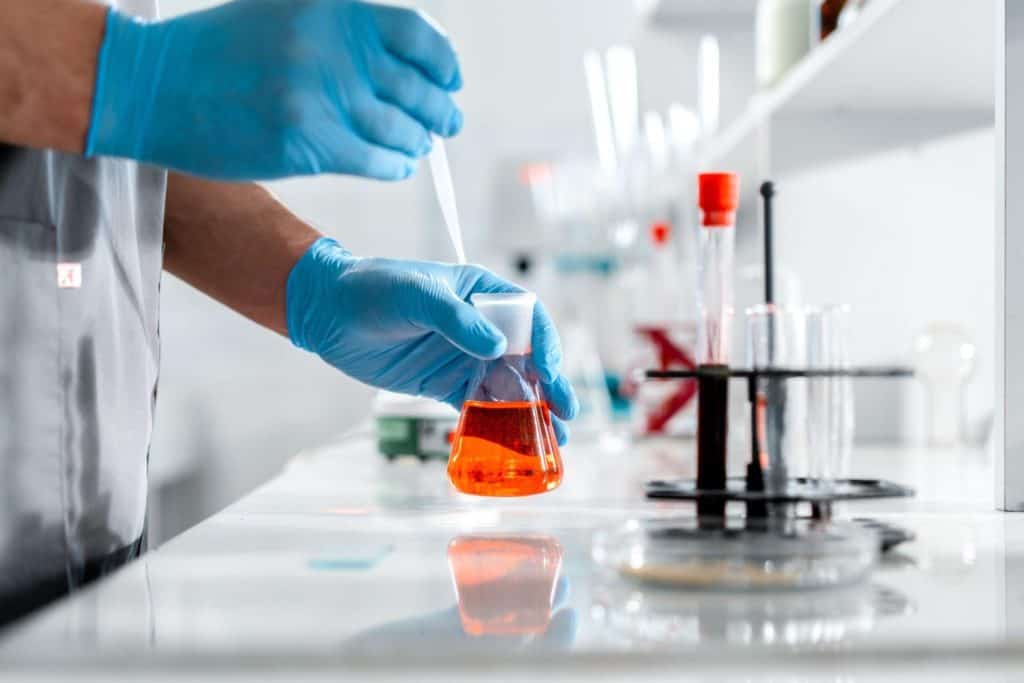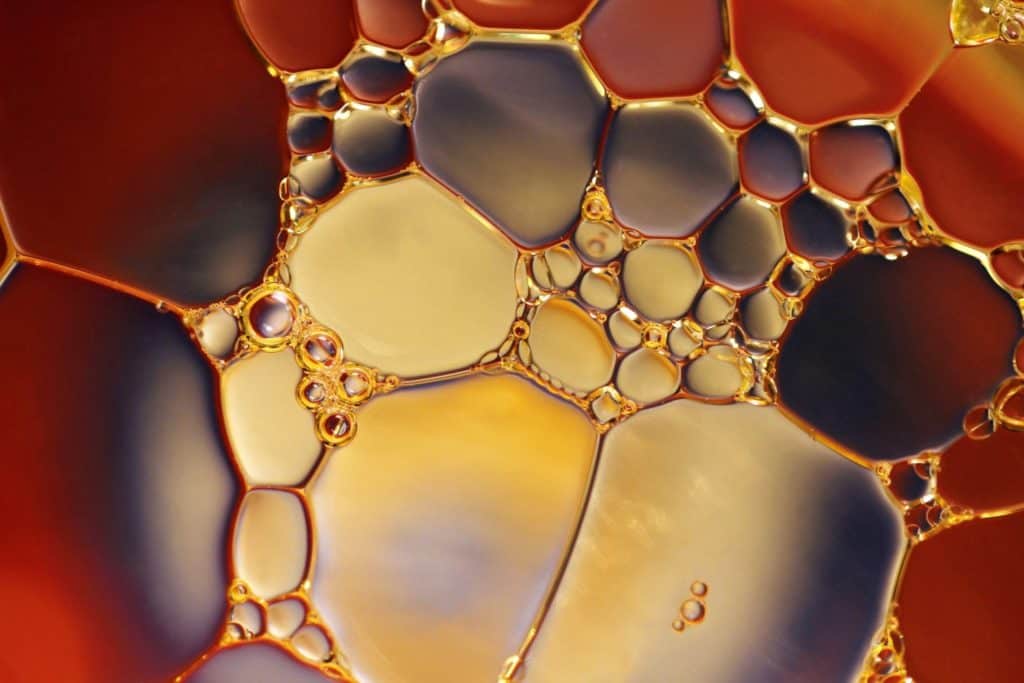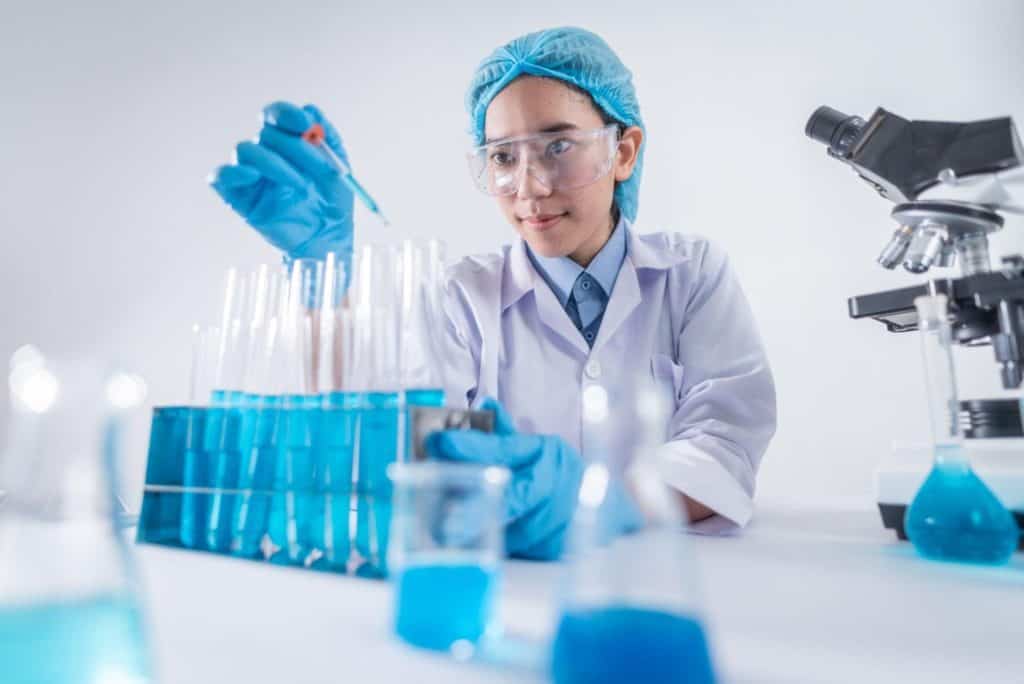
Antibodies are immunological proteins that develop in reaction to foreign substances entering the body. These invading molecules are known as antigens, and the immune system recognizes them molecularly, resulting in the creation of antibodies that can attach to the particular antigen. During antibody production, B-lymphocytes produce antibodies that circulate all the lymph systems, binding to their specific antigen and removing it from circulation.
So, what is the meaning of antibody production? The phrase “antibody production” has a broad and narrow definition. In a general sense, it includes the process of developing a usable specific antibody, which includes stages such as immunogen production, vaccination, hybridoma formation, collection, selection, isotyping, filtration, and tagging for immediate use in a technique.
In a more limited sense, antibody manufacturing refers to the processes building up to antibody synthesis but excludes different methods of isolating and identifying the antibody for specific applications. Read on to know the best steps and ways to produce antibodies commercially.
Which is a better antibody? Polyclonal vs. monoclonal?
Monoclonal or polyclonal antibodies: which is better? You can determine it by the differences between the two.
Due to their capacity to identify various epitopes of a target analyte, polyclonal antibodies are excellent reagents in custom antibody production and hemagglutination reactions. Polyclonal antibodies can quickly identify unknown invaders. In immunoassays, polyclonal antibodies get along as secondary antibodies (e.g., ELISA, western blotting). Their job is to attach to various epitopes and enhance the signal, making it easier to detect.
On the other hand, monoclonal antibodies offer an endless supply of homogeneous antibodies that behave predictably once defined. Because of its capacity to bind to a particular epitope of an antigen, researchers employ monoclonal antibodies as principal antibodies in immunoassays. Some of the drawbacks of employing each kind of antibody have been mitigated via practical use. Polyclonal antibodies may be purified to reduce the amount of cross-reactivity in tests. The use of several monoclonal antibodies increases the specificity of the antibody by allowing it to capture numerous epitopes.
What Are the Best ways to manufacture antibodies?
Antibody production is the safe administration of antigen specimens into research or farm animals to elicit large quantities of antigen-specific responses in the blood, which you can subsequently retrieve from the animal. Polyclonal antibodies are isolated from serum directly (bleeds). Monoclonal antibodies are made by combining antibody-secreting splenic cells from vaccinated mice with everlasting myeloma cells to generate monoclonal hybridoma cell cultures that create the particular antibody in the effluent cell culture.
Here are the best ways to induce antibody production:
Purification of antibodies:
Antibody purification entails isolating antibodies from plasma (polyclonal antibody), ascites effusion, or a hybridoma cell line’s cultivation supernatant (monoclonal antibody). Purification techniques vary from the most basic to the most precise:
- Deposition of a portion of total serum components, including immunoglobulins, known as crude.
- Purification of some antibody categories (e.g., IgG) based on affinity rather than antigen specificity
- Purification of just those antibodies in a specimen that engage to an associated protein molecule using specific—affinity filtration
The degree of purification required to produce a usable antibody is determined by the antibody’s intended application(s).
Antibody classification:
Antibody characterization includes three tasks often carried out at different phases of an antibody manufacturing and purification operation.
- Antibody samples with antigen-binding specificity are identified via screening.
- Tittering by determining the concentration of antibodies and the titer of a functional test
- Isotyping by identifying a monoclonal antibody’s subclass and subgroup
During manufacturing, screening determines which mammals and hybridoma clones produce a high number of antigen-specific antibodies. ELISA methods achieve this.
Antibody concentration may be determined using a generic protein analysis or a species- and immunoglobulin-specific technique, such as microagglutination test kits. Antibody titer is similar to attention. However, it relates to a particular antibody sample’s effective potency. In most cases, calculating the functional dispersion of an antibody specimen required for detection in a specific test, such as ELISA, is a measuring titer.
Isotyping a monoclonal antibody includes identifying its class and subtype (e.g., IgG1 vs. IgG2a). This is crucial in antibody manufacturing since it determines which purification and modification techniques are best for the molecule. Commercially available, ready-to-use antibody isotyping assays make isotyping a breeze.
Fragmentation of antibodies:
Purified antibodies alter specific applications by fragmenting them into fewer antigen-binding components, conjugating them with enzymes or other detectable indicators, or immobilizing them to solid supports. Antibodies are most often employed in whole-molecule form. However, using antibodies with non-essential parts deleted may enhance the effectiveness of specific methods and studies.
Antibody disintegration refers to cleaving entire antibody molecules apart and eliminating parts that aren’t needed for antigen binding. IgG antibody fragments Fab and F(ab)’2 are the most often produced and used by researchers.
Antibody immobilization and labeling:
Antibodies are made and purified in preparation for utilization as antigen-specific probes. However, their use in any method is contingent on a mechanism to detect the antibody secondarily.
Antibodies used in immunoprecipitation or other preference isolation techniques need methods to bind or immobilize them on chromatography medium (e.g., beaded agarose resin). The same principles and chemical techniques as antibody labeling are used to achieve this.
In Conclusion
Custom antibody production is a valuable method for producing antibodies against uncommon or unusual antigens. It is possible to keep the hybridoma cell line for future usage after developing an antibody. Anyone attempting to comprehend bespoke antibody manufacturing may use the procedures outlined above as a reference.
Tags: antibodies, antibody, health, medicine, virus


